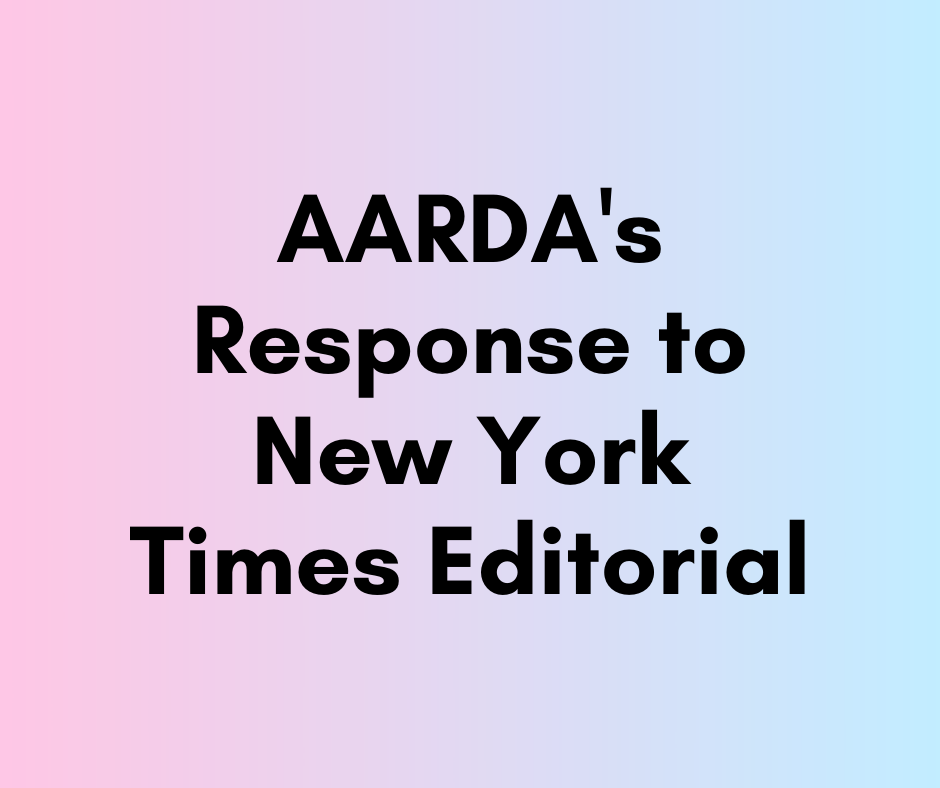
AARDA’s Response to New York Times Editorial
How is it fair that patients with the most need may never benefit from new drugs that might never be manufactured? Read AARDA’s response to a recent New York Times editorial stating that as a reasonable trade-off to reducing payments to drug companies, 8 to 15 drugs might not come to market. For too many people with chronic and debilitating conditions, serious illnesses, and disabilities, these new drugs could hold the life-changing medicine that they need to lead full and healthy lives.
How is it fair that patients with the most need may never benefit from new drugs that might never be manufactured? This is a bitter, unfair solution for millions of people living with autoimmune disease and other conditions that have yet to benefit from a medicine developed and exponentially effective for them.
The Autoimmune Association is dismayed by a recent New York Times editorial, “The American Way of Paying for Drugs Isn’t Working,” stating that as a reasonable trade-off to reducing payments to drug companies, eight to fifteen drugs might not come to market. For too many people with chronic and debilitating conditions, serious illnesses, and disabilities, these new drugs could hold the life-changing medicine that they need to lead full and healthy lives.
While CBO estimates that some 300 drugs would still come to market under this new model, it is a risk that your breakthrough drug may be one that is deferred that falls disproportionately on people with rare, often multiple conditions. Every day, these Americans struggle against the devastating effects of their diseases – hoping that the pharmaceutical innovation pipeline will deliver a miracle.
People living with autoimmune diseases, like the majority of Americans, are alarmed at rising costs across the health care sector, and they, more than most, face growing barriers from unwarranted step therapy, utilization management, and contracting arrangements that fail to put patients’ first. They have an enormous stake in continuing pharmaceutical innovation – not hindering it – to ensure improved health and wellness. These Americans, whose futures may depend on the cure or treatment inherent in one of those eight-to-fifteen drugs at risk of being sidelined, undiscovered and unrealized – should not have their health, their lives diminished or traded away as collateral damage in resolving America’s health care system. We can do better, together.
Randall Rutta
President & CEO
AARDA
Join our email list
Receive the latest blog articles, news, and more right to your inbox!
Related articles you might be interested in

Finding Purpose on the Trail: A Father’s Journey Through the Shenandoah for His Daughter and the Autoimmune Association

Meet Erika: Battling 6 Autoimmune Diseases—and Advocating for Millions

Autoimmune Association Announces Inaugural Hope Journey Walk Inviting Communities to “Lace Up for Hope”

Art with a Mission: John von Bergen Gives Back to Autoimmune Community Through Sales
Find more resources on autoimmunity
Learn more about autoimmunity, diagnosis tips, how to find a physician, and more.